Introduction
A compact excavator is a type of construction equipment that is commonly used for digging, demolition, and material handling in tight or confined spaces. It is a versatile machine that can perform a wide range of tasks, making it an essential tool for many construction projects. This article is a comprehensive guide to buying or renting a compact excavator in 2023. I hope it can help you to make a decision.
Compact excavators are particularly useful in projects where access is limited or where larger equipment cannot be used due to space constraints. They are commonly used in landscaping, excavation, grading, and demolition work, as well as in the construction of buildings, roads, and bridges.
The purpose of this article is to provide a comprehensive guide for individuals or businesses looking to buy or rent a compact excavator in 2023. It will cover the different types of compact excavators, the factors to consider before buying or renting, the process of buying or renting, safety considerations for operating the machine, and the future outlook for the use of compact excavators in construction projects.
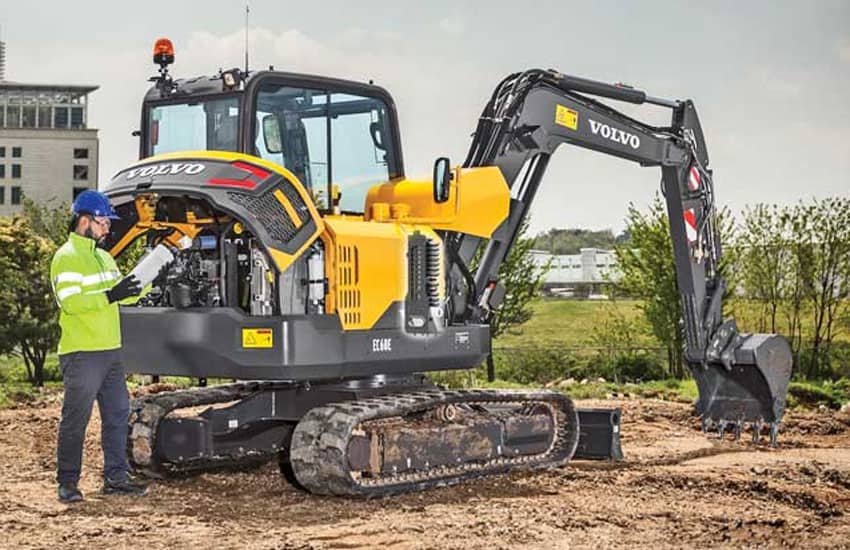
Types of Compact Excavators
Mini excavators
Mini excavators are the smallest and most common type of compact excavator, typically weighing between 0.5 and 8 tons. They are versatile machines that can be used in a variety of projects, such as landscaping, trenching, and demolition work. Mini excavators are ideal for working in confined spaces, as they can fit through narrow gates and doorways. They are also popular due to their fuel efficiency and low maintenance costs.
Midi excavators
Midi excavators are larger than mini excavators, typically weighing between 7 and 10 tons. They are suitable for medium-sized projects, such as residential and commercial construction. Midi excavators have a greater digging depth and reach than mini excavators, making them more efficient for larger projects. They also offer more power and hydraulic capabilities, allowing them to handle heavier loads.
Wheeled excavators
Wheeled excavators are unique in that they have wheels instead of tracks. This makes them more maneuverable and faster than traditional excavators. They are ideal for projects that require frequent repositioning of the machine, such as road construction and landscaping. Wheeled excavators are also more cost-effective than tracked excavators, as they have a lower initial cost and require less maintenance.
Zero tail swing excavators
Zero-tail swing excavators are designed to work in tight spaces where traditional excavators cannot. They have a minimal tail swing radius, which means they can rotate 360 degrees without hitting any obstacles. Zero tail swing excavators are commonly used in urban areas for projects such as road repair and maintenance, as well as demolition work.
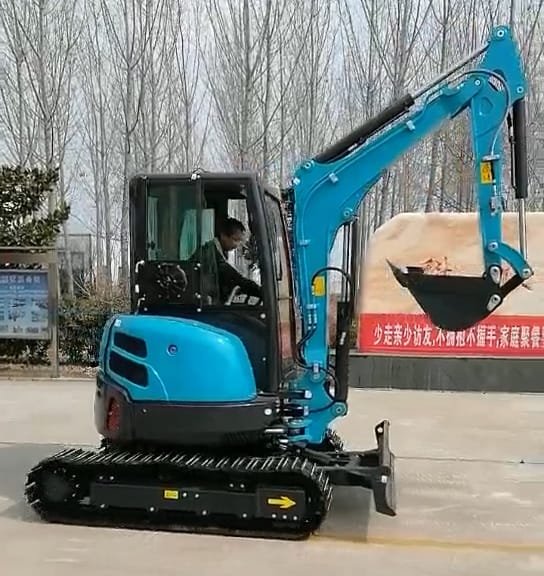
Explanation of their features and advantages
All types of compact excavators have their own unique features and advantages. Mini excavators are versatile and efficient, while midi excavators offer greater digging depth and power. Wheeled excavators are more maneuverable and cost-effective, while zero-tail swing excavators are ideal for tight spaces. When choosing a compact excavator, it is important to consider the specific requirements of the project to determine which type of machine will be the most effective.
Factors to Consider Before Buying or Renting a Compact Excavator
Before buying or renting a compact excavator, there are several factors to consider to ensure that you choose the right machine for the project.
Type of project
The type of project you are working on will have a significant impact on the type of compact excavator you will need. For example, if you are working on a small residential landscaping project, a mini excavator may be the most suitable machine. On the other hand, if you are working on a larger commercial construction project, a midi excavator may be a better choice.
Size of the project
The size of the project will also determine the type of compact excavator you will need. If you are working on a small project, renting a compact excavator may be the most cost-effective option. However, if you are working on a larger project that will take several months, it may be more economical to purchase a machine.
Budget
The budget you have available will also impact your decision to buy or rent a compact excavator. Renting a machine is generally more affordable in the short term, but purchasing a machine may be more cost-effective in the long term.
Durability and reliability
The durability and reliability of the machine is also an important factor to consider. Look for a machine that is built to last and is made by a reputable manufacturer. You may also want to consider purchasing or renting a machine that comes with a warranty or maintenance plan.
Operating weight and digging depth
The operating weight and digging depth of the machine will also be important considerations. Make sure the machine you choose can handle the weight of the loads you will be moving and has the digging depth required for your project.
Attachments and versatility
Finally, consider the attachments and versatility of the machine. Many compact excavators come with a range of attachments, such as buckets, hammers, and grapples, which can increase the machine’s versatility and allow it to perform a wider range of tasks.
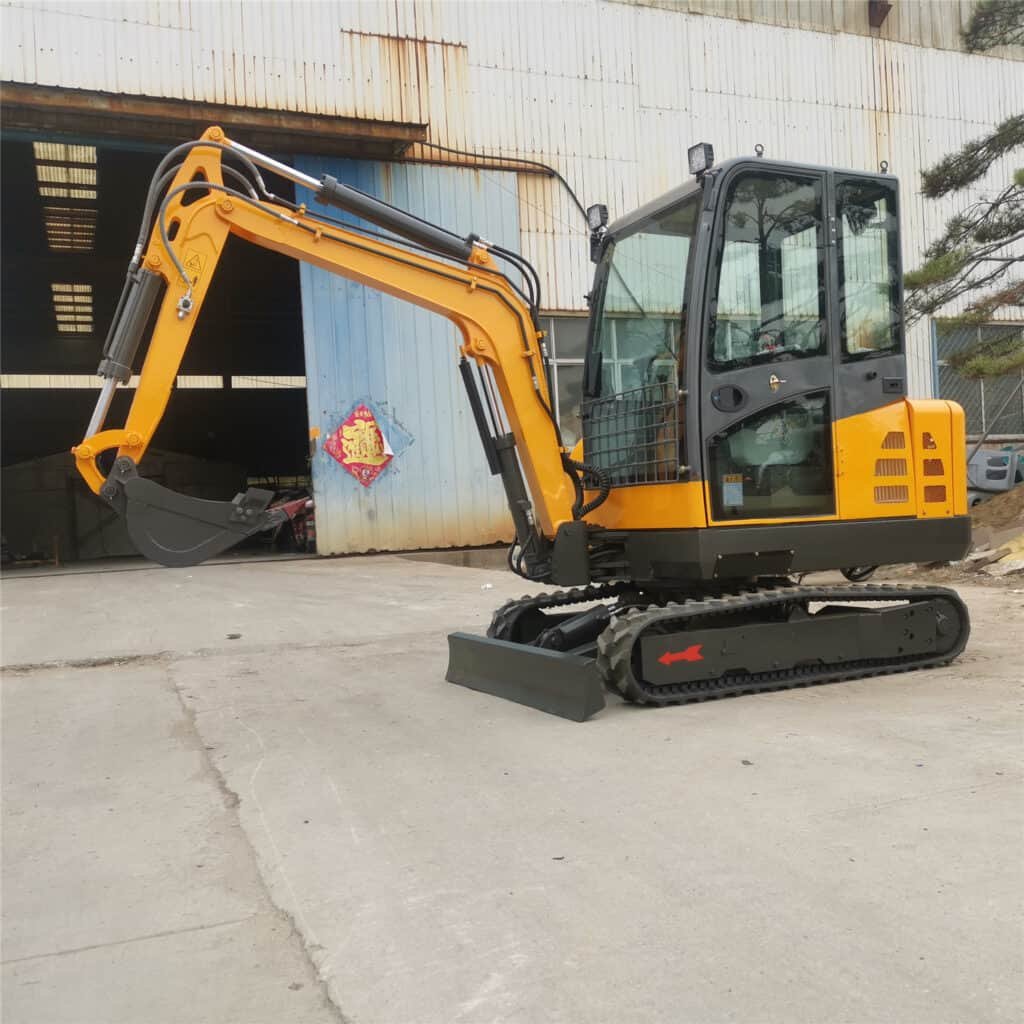
Renting a Compact Excavator
Renting a compact excavator can be a good option for those who need the machine for a short-term project or want to avoid the upfront costs of purchasing a new machine. Here are some important factors to consider when renting a compact excavator:
Understanding the rental agreement and terms
Before renting a compact excavator, make sure you understand the rental agreement and terms. Review the contract carefully and ask questions if you have any concerns. Pay attention to factors such as the rental period, rates, deposit, and insurance requirements.
Evaluating the rental company and equipment condition
It’s important to evaluate the rental company and the condition of the equipment before renting a compact excavator. Look for a reputable rental company with a track record of providing reliable equipment and good customer service. Inspect the machine thoroughly to ensure that it is in good working condition and meets your project’s requirements.
Comparing rental costs and options
Compare rental costs and options from different companies to find the best deal. Keep in mind that the lowest rental rate may not always be the best option. Consider factors such as the age and condition of the machine, the rental period, and any additional fees or charges.
Maintenance and service requirements
Make sure you understand the maintenance and service requirements for the rental machine. Ask the rental company about their maintenance schedule and what to do if the machine breaks down. You may also want to consider purchasing a maintenance and service plan to ensure that the machine stays in good working condition throughout the rental period.
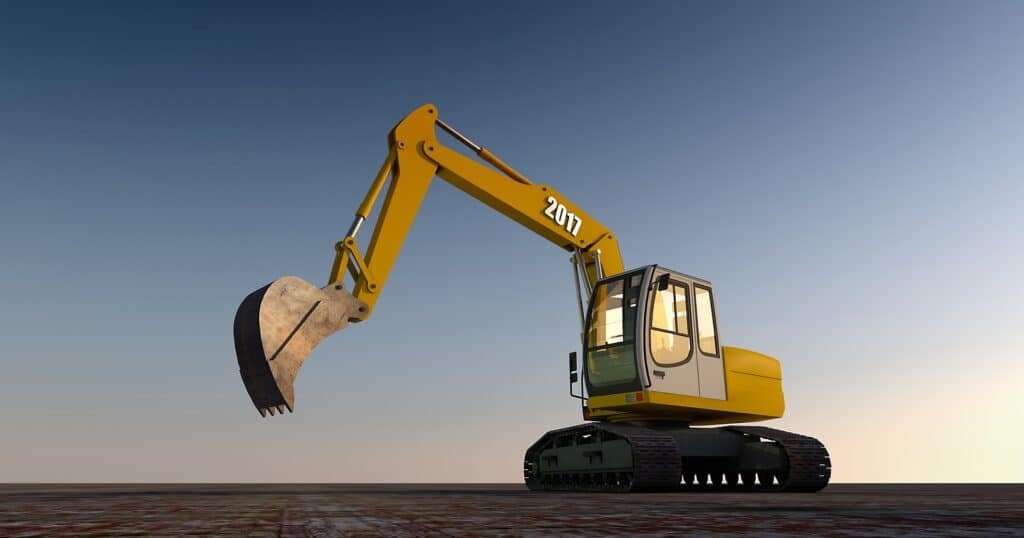
Conclusion
Summary of key points covered in the article
In summary, a compact excavator is a versatile and efficient machine used in a variety of construction projects. When considering buying or renting a compact excavator, it’s important to consider factors such as the type of project, size of the project, budget, durability and reliability, operating weight and digging depth, and attachments and versatility. Mini excavators, midi excavators, wheeled excavators, and zero tail swing excavators are some of the common types of compact excavators available in the market.
Renting a compact excavator can be a good option for those who need the machine for a short-term project or want to avoid the upfront costs of purchasing a new machine. To ensure a successful rental experience, it’s important to understand the rental agreement and terms, evaluate the rental company and equipment condition, compare rental costs and options, and understand the maintenance and service requirements.
Recommendations for buying or renting a compact excavator
When buying or renting a compact excavator, it’s important to do your research and choose a machine that meets your project’s requirements and budget. Consider factors such as the type of project, size of the project, budget, durability and reliability, operating weight and digging depth, and attachments and versatility. Whether you choose to buy or rent, make sure you understand the terms and conditions of the agreement, evaluate the equipment thoroughly, and consider maintenance and service requirements.
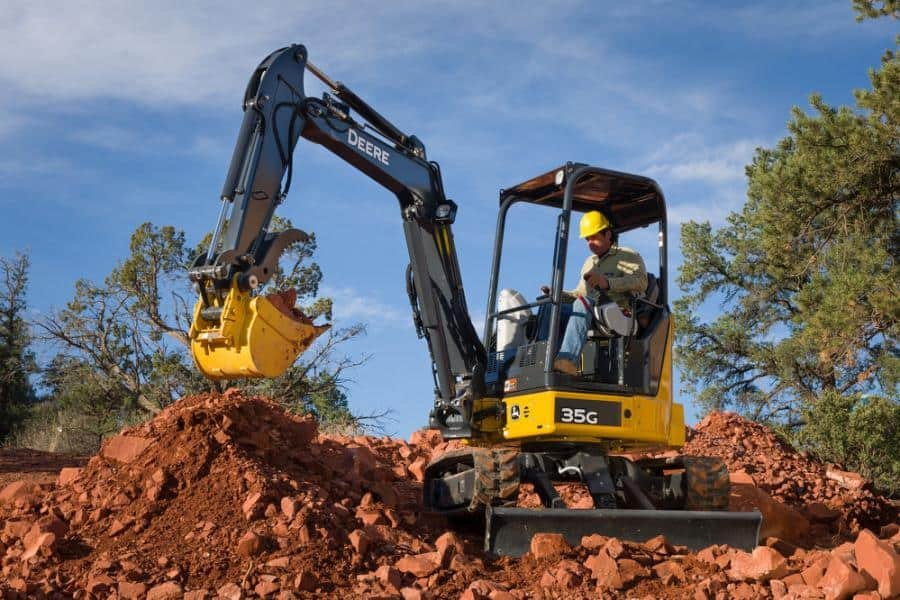
The future outlook for the use of compact excavators in construction projects
The future looks bright for the use of compact excavators in construction projects. With advancements in technology and design, compact excavators are becoming more versatile, efficient, and environmentally friendly. As construction projects become more complex and demanding, the need for compact excavators will continue to grow. With careful consideration and proper maintenance, a compact excavator can be a valuable asset for any construction project. For further information about buying or renting a compact excavator, please contact us.

